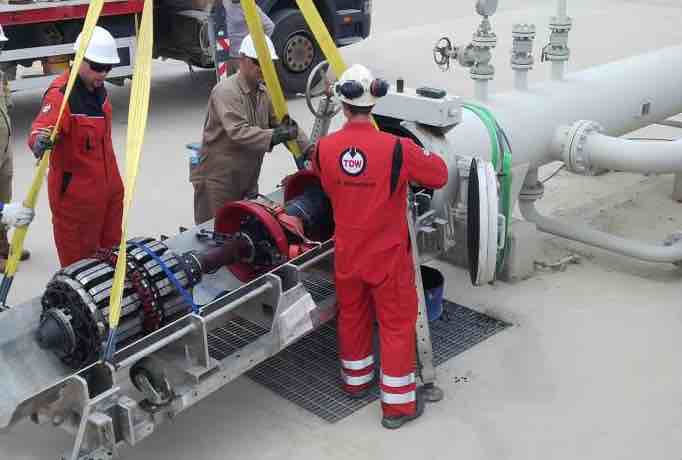October 2016, Vol. 243, No. 10
TechNotes
Inside Iraq: Stringent Security Required for First Inline Inspection

Minimizing risk to personnel and preventing incidents is a daily priority in the oil and gas industry. Sometimes, though, location or logistics mean a pipeline project requires extraordinary safety measures.
Case in point: the first inline inspection (ILI) of gathering lines in an oil field 65 km (40 miles) north of the port city of Basra, Iraq. This is the one of the largest oil fields in the world, with recoverable oil reserves of 13 billion barrels.
The project proved the integrity of the pipelines and allows the operator to modulate maintenance schedules, keeping the pipelines running with minimal disruption to production and environmental impact. But its implementation called for such security efforts as transportation convoys and bulletproof vests – precautions that helped keep the field crew safe and enabled the work to be completed ahead of schedule.
ILI provides baseline assessment
Construction of the main production facilities at the massive oil field began in April 2012 with first production in March 2014. Within months, the field’s Russian operator decided to take a proactive approach to integrity management, and conduct an initial inspection that would provide a baseline assessment of the field’s new pipelines.
The engineering firm working with the operator contracted global pipeline solutions provider T.D. Williamson, Inc. (TDW) to clean if necessary, gauge, and inspect the field’s 20- and 24-inch gathering lines. The targeted pipeline sections ranged in length from 3.8 km (2.3 mi) to 6.6 km (4.1 mi).
The ILI runs included the KALIPER® 360 tool, which provides geometry inspection; and gas magnetic flux leakage (GMFL) technology, responsible for identifying corrosion and pitting. TDW performed 15 tool runs – five gauging, five KALIPER 360, and five GMFL – with 100% success. The field work was completed within five weeks, ahead of schedule.
Among other factors, TDW Project Manager Fadi Taha credits the diversity of the company’s workforce for the project progressing so efficiently. Specifically, the TDW team included a Czech national, Ales Kaderábek, who speaks Russian and could communicate with the operator’s field personnel in their native tongue. According to Taha, this avoided miscommunication and confusion, and helped keep everyone on track.
Security Regime
And what about the extreme security measures?
TDW ILI Operations Manager Matthew Wicks describes the overall security situation in Iraq as precarious. Yet, he says, the multi-layered measures instituted by the engineering firm safeguarded TDW personnel on and off the job site. That included an elaborate private security regime for transporting TDW personnel from Basra International Airport to the oil field.
“Transportation is always in convoys,” he says. “The presence of armed guards and restrictions on personal movement are constant reminders that you’re working in Iraq. However, the large contingent of foreigners who’ve been at this field for a long time testifies to the efficiency and effectiveness of the security regime in place. Soon enough, one gets comfortable with the security protocol and gets along with the task at hand.”





Comments